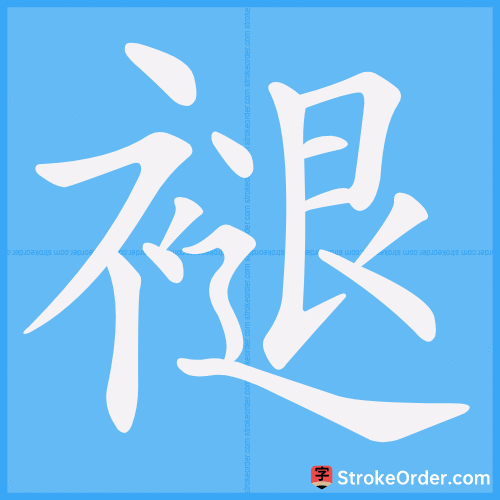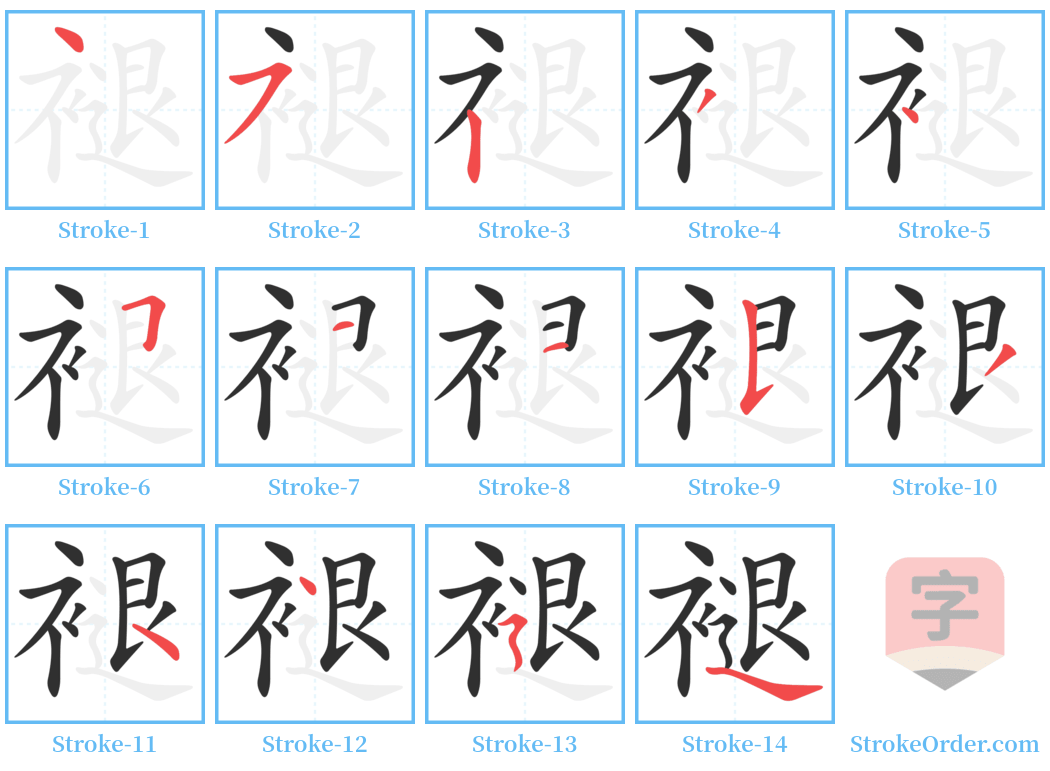褪 Stroke Order
Animated Stroke Order of 褪

Stroke Order Diagrams for 褪

Step-by-Step Handwriting Guide for 褪

Learn to Write Chinese Characters with Video Tutorials
Watch the video of writing the Chinese character "褪", learn the correct stroke order (笔顺) of the character "褪", and master the standard way of writing the character "褪".
Free Printable Handwriting Practice with Stroke Order: 褪
Printable Writing Practice Worksheet of "褪" in Portrait Orientation (Tian Zi Ge)

Printable Writing Practice Worksheet of "褪" in Landscape Orientation (Tian Zi Ge)

Information of 褪
Pinyin
tuì、 tùn
Radical
衤
Strokes
14 strokes
Usage
★★★★★
Definition
fade / take off (clothes)
褪 [tuì]
1. To fall off, to shed.
Example: When the plums shed their flowers, they align with the yellow plums. To take off clothing. The rabbit is shedding its fur.
2. To fade or disappear in color.
Example: Faded color. The color has completely faded.
褪 [tuì]
1. To shed clothing or something worn.
Example: To take off the sleeves.
2. To withdraw and hide.
Example: To tuck one's hands into the sleeves.
3. To retreat or escape.
Example: Don't just retreat when encountering difficulties.
褪 [tùn]
1. To take off.
Example: The original meaning is to undress.
2. To eliminate or vanish.
3. To wither or wilt.
4. To relieve.
5. To loosen.
6. See also tuì.
褪 [tùn]
1. To take off.
Example: According to "Yunhui," it means to take off clothes.
2. To vanish.
Example: As expressed in a poem by Lu You: The spring activities are dwindling; the mountain village has not yet shed the cold.
3. To wither.
Example: As mentioned in a poem by Xin Qiji: When the plums shed their flowers, they align with the yellow plums.
4. To relieve.
Example: In "Heroes of the Children and Daughters," it states: Saying this, he took off the slingshot and handed it over.
5. To loosen.
Example: In a poem: When I become thin, I suddenly feel my green shirt loosen.
6. See also tuì.
Input Method for 褪
Pinyin
tui4
Wubi
puvp
Cangjie
lyav
Zhengma
wtwx
Four Corner
37233
Unicode
U+892a
Same Pronunciation Characters